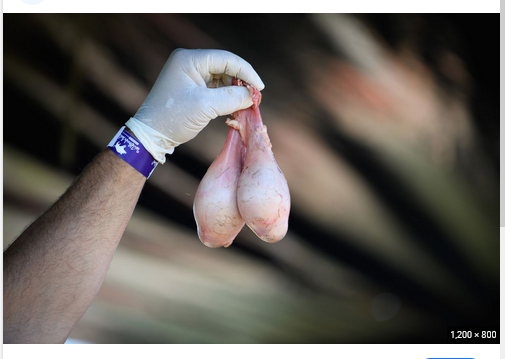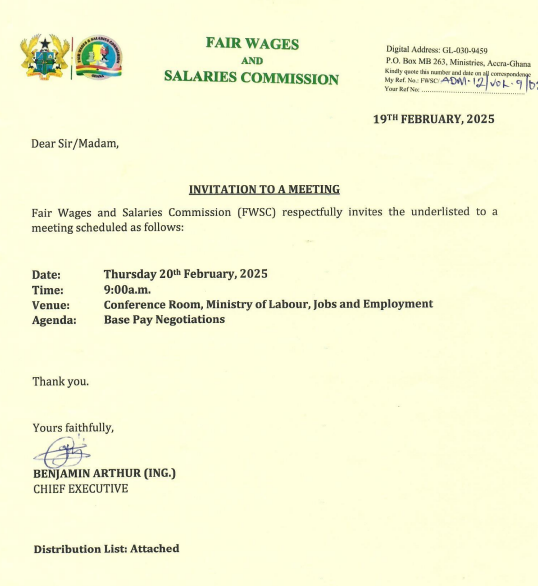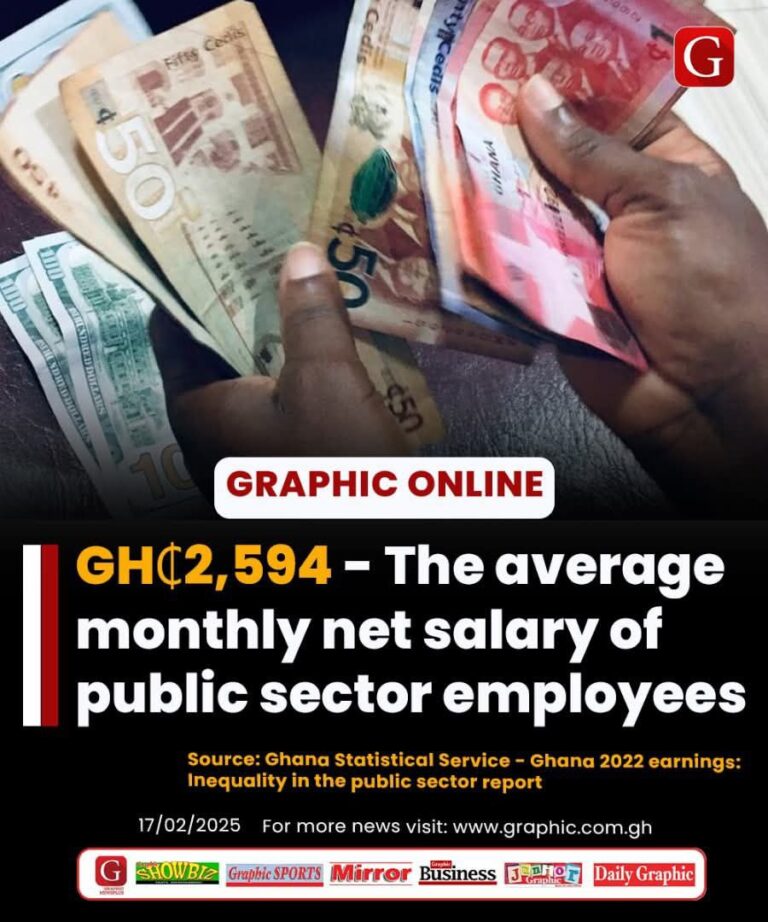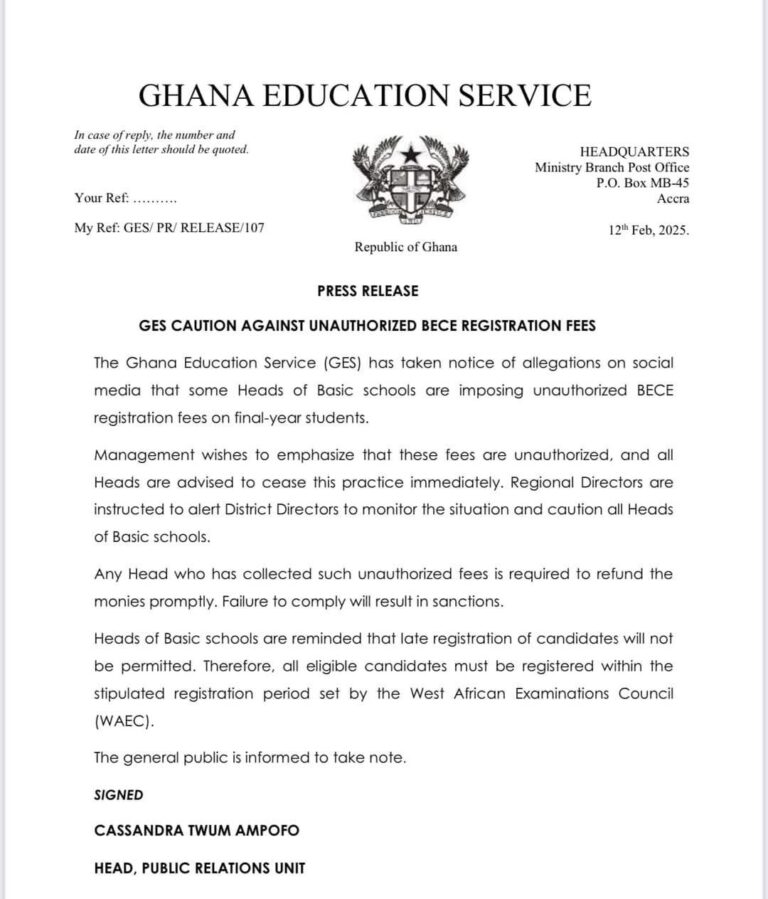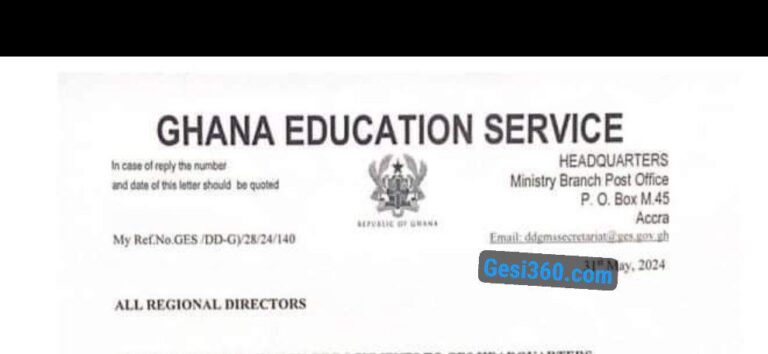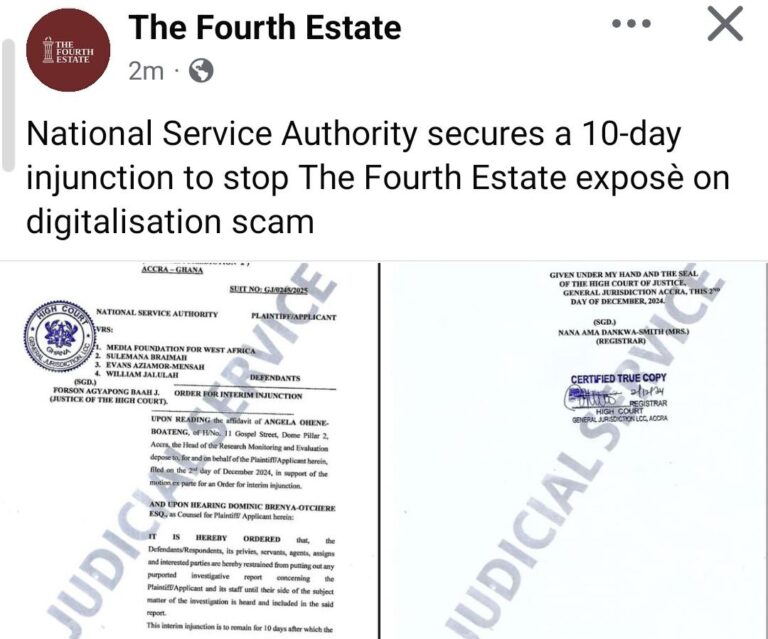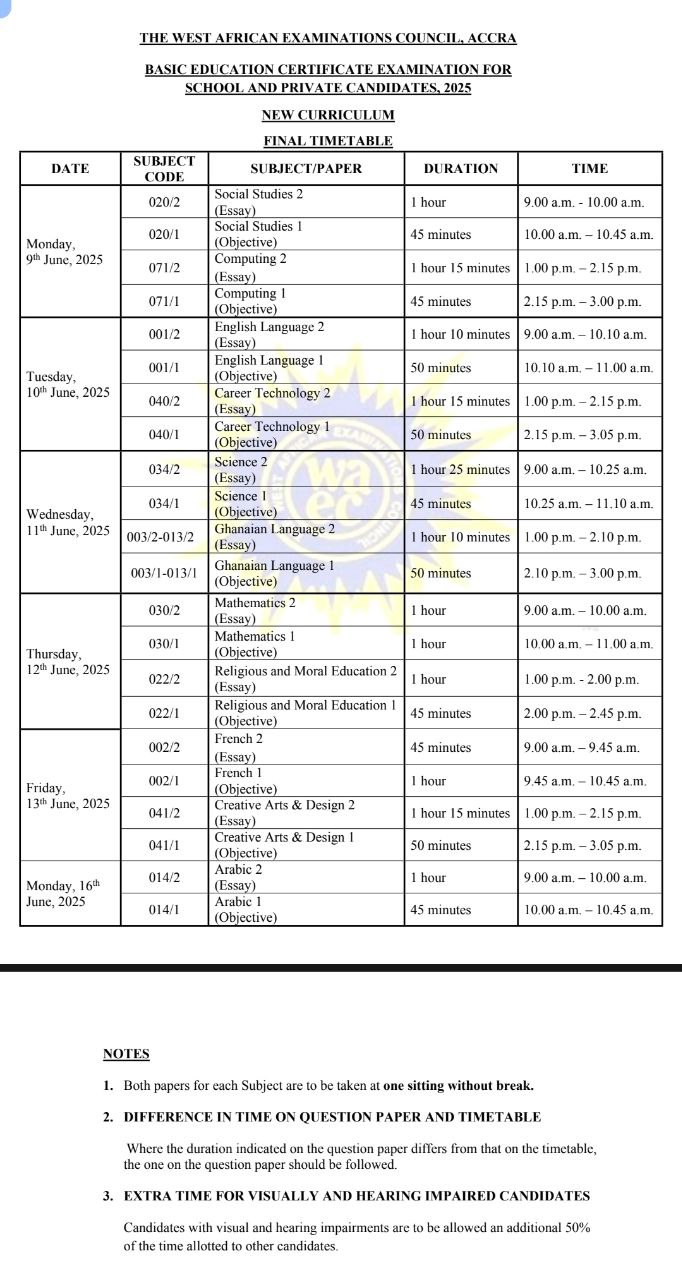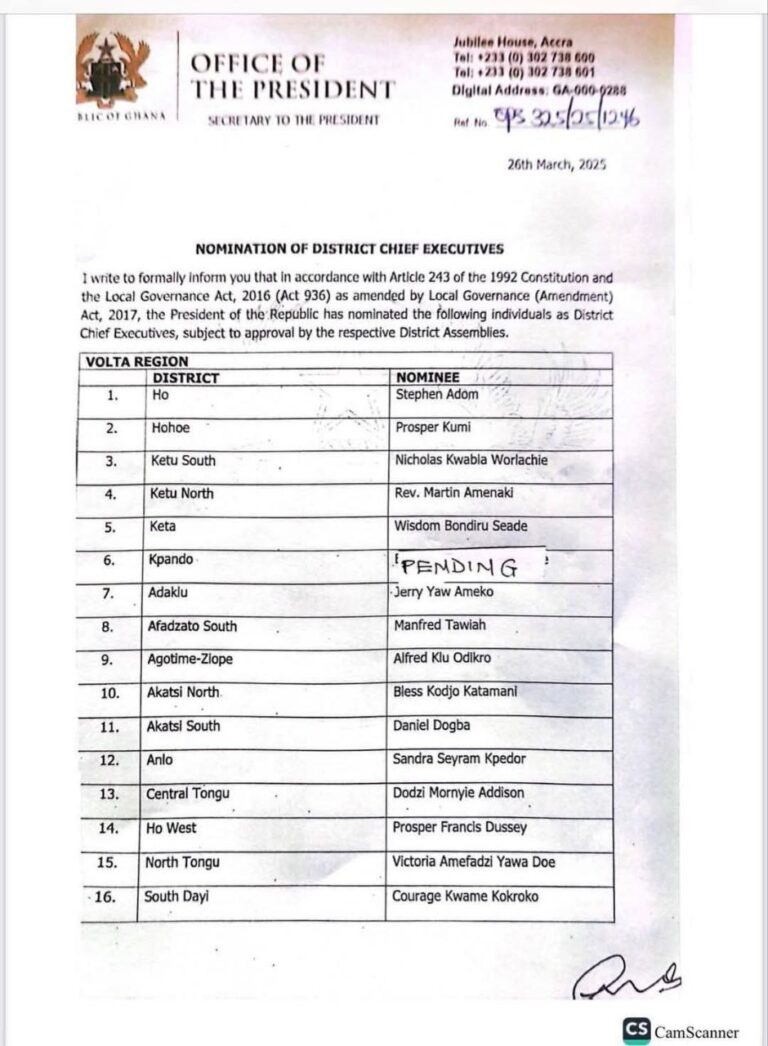Woman arrested for biting customer’s testicles over 20 pesewas A 43-year-old woman, identified as Esi Affumwaa, has...
Latest News
Government Approves 10% salary increase for public sector workers The much-anticipated 2025 base pay negotiations between the...
The Stark Reality of Public Sector Salaries in Ghana: Every five public sector employees earn less than...
OSP Charges Six Over Payroll Fraud and Corruption The Office of the Special Prosecutor (OSP) has brought...
PRESS RELEASE GES CAUTION AGAINST UNAUTHORIZED BECE REGISTRATION FEES The Ghana Education Service (GES) has taken notice...
Woman Helps Husband Kill Her Boyfriend to Fake Husband’s Death and Claim Insurance Money South Africa –...
The Driver and Vehicle Licensing Authority (DVLA) has officially released the 2025 DV plates across all its...
Request for Update of Records by GES Staff REQUEST FOR UPDATE OF RECORDS ON GHANA EDUCATION SERVICE...
NSS Scandal: Court strikes out injunction application, fines NSA GH₵6,000 A High Court in Accra has struck...
Release of 2024 GES Teaching Staff Promotion Results The results for the 2024 GES teaching staff promotion...

